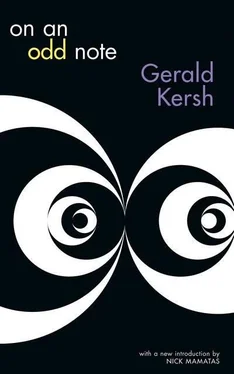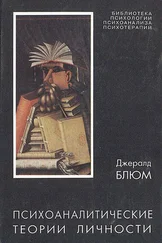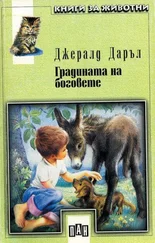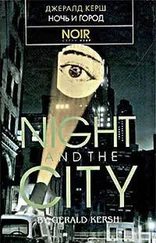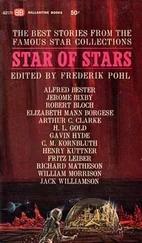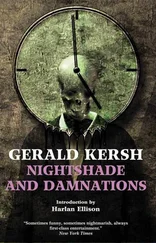“First thing in the morning Lord Lovejoy phoned him and told him to come around to the office, immediately if not sooner; which he did. Now what was said at that interview I never quite knew, but knowing old Lovejoy I can pretty well guess. So I didn’t feel easy in my mind when I went to the Pig’s Head for a pie at noon; but when Bohemund came in I was absolutely appalled by his face—it was always pale in a creamy kind of way; now it was like curds and whey. The barmaid reached automatically for the gin, but Bohemund said, ‘A ginger-ale, if you please, Miss Broom.’ She nearly dropped the bottle, she was so surprised. He said to me, ‘Morris, I’m on the wagon—I’m on the wagon for life. Look at this.’ And he fished out of his pocket some copy paper, crumpled into a ball. ‘Lovejoy chucked it in my face,’ he said. ‘He threatened to fire me, as usual, but when I saw this stuff, for the first time in my life I could only apologize. I said something must have gone wrong with my typewriter. Then Lovejoy asked me, well, what was this famous leader I had been shouting about? And for the life of me I couldn’t remember a word of it! I went back to look at old Rataplan. Morris—there is nothing wrong with my typewriter! I must have gone out of my mind. Chuck this stuff away, Morris, and promise me you’ll never breathe a word of this to a soul.’
“I promised, and I kept my word. But Alf squealed in the end and, as Bohemund had prophesied, I was responsible for making a bigger hissing and mockery of him than anyone else in the Street. But before he found out, he didn’t touch a drink for close on a year; so perhaps he was the better for it, after all.”
“Swindle-sheet” Morris opened a drawer and rummaged in a litter of souvenirs—racing cards, autographed menus, and what not—and took out some crumpled yellow flimsy copy paper. He said, “I didn’t chuck it away; I kept it. I’m funny about mementos. Can you imagine old Lovejoy’s face when he saw this?”
I took the copy and read:
Waf iakh er aaumqa Ibala ssad tunsabal mash naqatal ruma niyaa andzu hooralhi lalalga deed .
O ulanya squtay uhuma . Hak azac at taraal qadar .
Way a tazauag alhila lwal sa leebta khtb urgad dubzee al alf rigl waya temzali kfeea amda mual ginse eal ass faree .
Way a tazauag assal eebalkhu ttafmaa ssal eebalma akcof feel nari waldami khennayal tahermua lkhamlual assad takhtal qadeebwa ifas wassal eebal maksoor .
Way a ssaadual assa dubaadi zali kmaalni srwatu alaq alduf daamin aqda miha .
Waf eehazi hialsa na alsa natalkham soonmin kharbal alfazya assoo duassala amqem mamana alatwar tafa at fau qaalkhar abiwa alaanqa adialar dalmah rooka .
“I can just imagine,” I said. “Mind if I take a copy?”
“If you like, Gerald,” “Swindle-sheet” Morris said gloomily. “Only if you write the yarn and sell it to a magazine, you might remember to give me a twenty-five per cent cut, old man?”
I might never have written it if my old friend, Dr. Marengo, had not come to my house to wish me bon voyage when I was leaving for America in April, 1955. Dr. Marengo is best known, of course, as Kem, the cartoonist; but he is also famous as a political scientist, an expert on international law and a linguist: he speaks and writes seventeen European and Oriental languages with perfect fluency and accuracy. While we chatted as old friends will, I was turning over an old box-file full of unconsidered scraps of paper. And there, among hieroglyphic notes which had lost their meaning and newspaper clippings the significance of which I had forgotten, I found my copy of Bohemund Raymond’s leader.
I handed it to Kem and said, “You’re good at cryptograms. What do you make of this one?” He took the paper, put in his monocle and stopped eating salted peanuts for several minutes while he concentrated on the words before him.
Then he said, “But my dear Gerald, this is not a cryptogram at all. It is, actually, pure Arabic written phonetically, as far as that is possible, in Roman letters—only some of the words are broken up and others are run together. One needs only to read it aloud, and it becomes quite clear.”
“Arabic?” I said. “Did I hear you say Arabic ?”
“Certainly—
Wafi ákher aa ’uam qalf al ássad túnsab al mashnaqat’ al rumaniya aand zuhoor al hilál gadeed .
Oulan yasqut ayuhuma . Hákaza sáttara alqãdar . . .
. . . means, in English:
In the last year of the heart of the lion , the Roman gallows must stand against new moon .
Neither may fall . So it is written . . .
. . . That is the accurate pronunciation, and a fair translation, of the first paragraph, for example. Shall I—”
“Roman gallows?” I cried. “That’s the cross! New moon—Mohammedan crescent! Last year of the heart of the lion—the crusade, in which Richard the Lion-Hearted died!”
“Exactly, Gerald, in 1199,” said Kem. “And what do you make of the second paragraph? . . .
Wayatazduag ’ alhilál wal ’ saleeb takht búrg ad’dúb zee al alf rigl , wa yátem’ zalik fee aam dámu al ginsee al assfáree . . .
. . . This says, in English:
Cross and crescent moon shall be married under the symbol of the bear with 1,000 legs . This is in the year of the blood of the yellow men . . . ”
I said, “Why, Kem, obviously this refers to the U.S.S.R.! The bear with a thousand legs is Russia—cross and crescent moon is meant to be hammer and sickle! Go on!”
Kem said, “Freely translated, the third paragraph says—
Cross and crook shall wed crooked cross in fire and blood when lion is devoured by lamb under rod and axe and broken cross . . . ”
I shouted, “The Russo-German Pact! Hammer and sickle shall wed swastika when lion (that’s Britain) is devoured by lamb (Hitler’s astronomical sign was the Lamb) under Mussolini’s fasces and the Nazi swastika!”
Kem said, “The next paragraph is rather interesting—
Wayassá ’adu al ássadu ba’adi zálik maal ’ nisr , watu’ - alaq dufda’a min aqdámiha . . .
It means:—
“ Then the eagle shall rejoice with the lion , and the frog shall be hung by the feet . . .
Surely, Gerald, the Eagle is the United States. That bit must refer to the victory of the Allies and the death of Mussolini, ‘the Bull-Frog of the Pontine Marshes.’ They did hang him up by the feet, you know.”
“Go on! Go on!” I pleaded.
Kem went on: “The last piece is the most interesting of all, really . . .
Wáfee házihi alsána , alsánat ’ al khamsoon min kharb al alfaz , yassoodu assaláam qemmáman aalat wa ’rtafáat fáuqa alkhárabi waala anqáadi al ard almahrooka . . .
This says, in effect:—
In this year , the 50 th year of the war of words , peace shall come in high places above burned earth . . .”
I said, “The fiftieth year of the war of words—that might mean the cold war will last half a century, until, say, 1995. But the next bit about the burned earth; is that H-bombs, or cobalt bombs, or something even worse?”
Kem said, with a shrug, “Where did you get this remarkable document, Gerald?” I told him, then, “Swindle-sheet” Morris’s account of the trick he had played on Bohemund Raymond. Kem laughed and said, “Yes, poor Morris loved a joke. If you don’t mind my asking—does it occur to you that he might, perhaps, have been playing a trick on you, Gerald?”
Читать дальше
